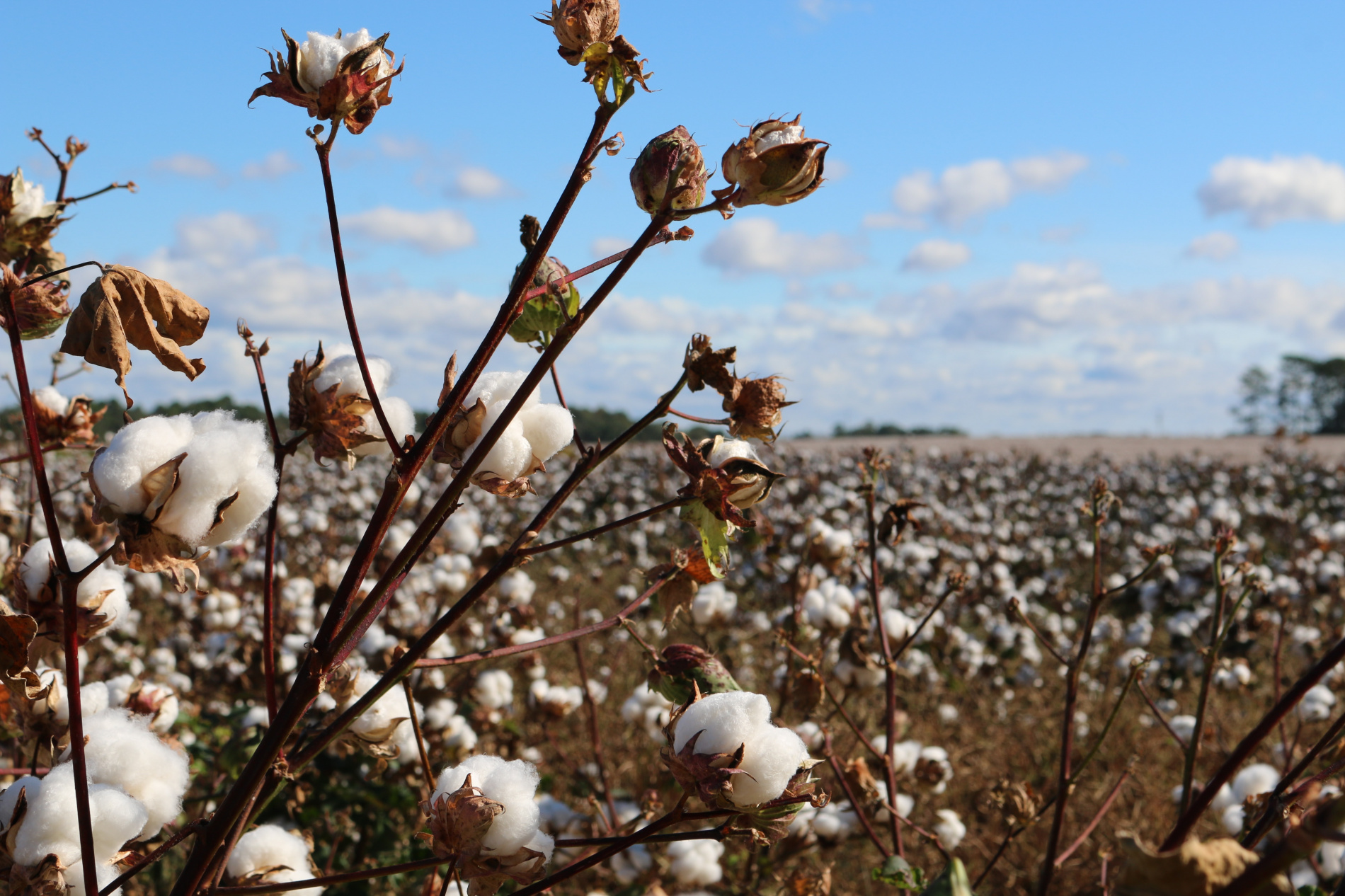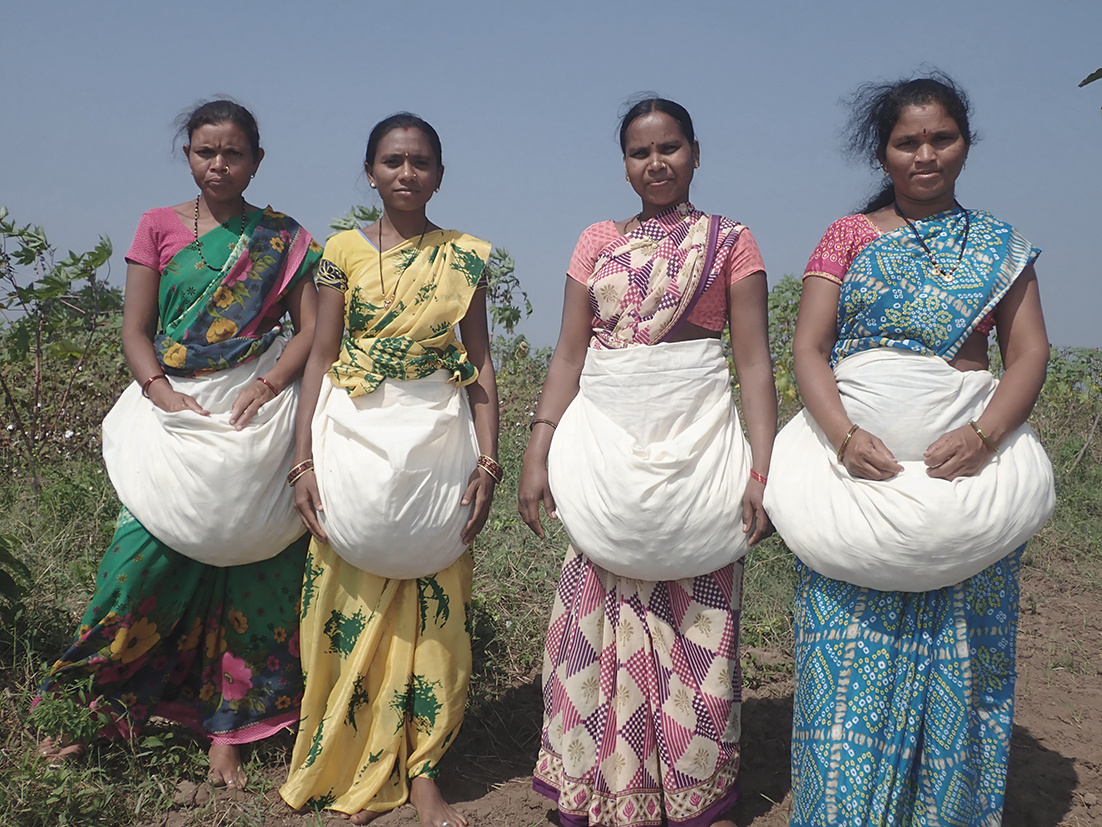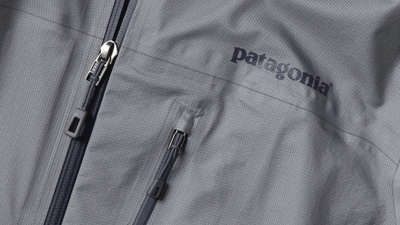Opinion
CO’s Clare Lissaman On 15 Years Working In Sustainability
What did you do before you co-founded Common Objective?
I spent 15 years working as an independent consultant on ethical trade and fair trade with a number of clients straddling NGOs and corporates as well as in the emerging area of ethical business. I often worked as an outsourced ethical trading manager for brands and retailers helping develop and implement ethical trading strategies.
I also worked on research and policy work in this area for organisations such as Fairtrade, Ethical Trading Initiative (ETI), DfID and Traidcraft and delivered trainings to brands including Tesco, Sainsbury’s and Arcadia Group.
Once I had a brilliant project helping TK Maxx get Fairtrade cotton from Malian smaller holder farmers into the Comic Relief t-shirts they sell. They needed an African supply chain for the whole product, which given the limited number of spinning and knitting mills across the whole of Africa, let alone in West Africa (the nearest mill was in Côte d’Ivoire which had just had a coup so was inaccessible!) at the time was quite a challenge.

They also needed the margins to work so that funds could be raised for Comic Relief but obviously conditions through the chain had to be as ethical as possible. So a real challenge to merge the business and sustainability needs. Being able to map and look at the whole landscape and build relationships with key players as well as train the buyers was critical to being able to set up the chain.
I also worked on launching Fairtrade cotton with the Fairtrade Foundation which really got me into understanding textile supply chains and fashion and then later work in developing the Fairtrade Textile Standard.
Where do your specialist skills and knowledge lie?
My specialist skill lies in developing and helping to implement strategy. It comes from a wide ranging knowledge of sustainable issues in global supply chains that I have built up over my career. This encompasses the key players in the network that I have built, my in-depth knowledge of who is doing what, what works what hasn’t worked, what the learnings are as well as how you can learn from other people. I am in a position to draw from all of that experience and knowledge and advise businesses around their needs.
One of my strengths is being able to take the bigger picture and get right down to the core elements - what is most relevant, what is useful to you here, how do you make that work? And I’m all about process. How do you embed these things and make it work in your business?
How do you make that work on the ground? How do you not reinvent the wheel, how do you not just do what everyone else is doing even though it doesn’t work? How do you turn that into actual action? How do you actually implement it? I’m used to crossing the bridge between the NGO community and businesses which is critical.
A skill set I discovered along the way that I have is being a great panel chair!

How do you think the sustainable fashion space has changed since you first started working in it?
Perhaps one of the biggest shifts is that there is a sustainable fashion space now. It not even in the last 15 years but the last two years that it feels that a greater weight of the industry brands have embraced talking about sustainability as almost a license to operate so I think that’s been a real shift.
It is being talked about more and although it is business as usual to some extent we are seeing businesses putting links to their CSR pages right on the front page of their website, high up and visible. 15 years ago that didn’t happen across anything let alone sustainable fashion.
Amongst those who have taken it up we are often seeing a fragmented scattergun, ad-hoc approach to things that are done rather than seeing it really embedded by fashion businesses. That has yet to come.
I've noticed there has also been a real shift in terms of design. We’re seeing cutting edge design being able to be done in more sustainable ways and that has been a real change.
I also think we’re seeing a lot more solutions for specific technical issues whether it is around chemicals or some business processes that have entered the space and been taken up by an increasing number of businesses.
What sustainable fashion issues do you feel most passionately about and why?
This has been pretty much consistent since I was 20, it is about the impact of trade on poverty. Trade can be a way to lift people out of poverty and we can do that without hurting people or planet.
I firmly believe that trade can, and should, be done in ways that benefit rather than harm people and planet. My first awareness was around fair trade and how smaller communities can use trade done fairly to lift themselves out of poverty; thank you Traidcraft for coming to my school with your stall.
It was later on that I came to look at and work the other way, how global supply chains work and how it impacts on livelihoods and income.
And interestingly, because I ended up working on cotton, I ended up knowing a lot about the environmental issues. And we tend to talk about these things as if they are all separate - financial, social and environmental - but they’re all intertwined anyway.
Are social issues getting the space they deserve in sustainability at the moment?
No, I don’t think so. And that worries me. It’s not just the 14 million workers who still don’t receive a wage they can live on (though that is scandalous given the wealth of some of the owners of fashion brands) but also things that we don’t really hear about at all like the impact on children of migrant workers.

2013 was a wake-up call when Rana Plaza collapsed and 1,134 people died, most of whom were garment workers died. People were very much at the heart of what the industry was thinking about that point. We seem to have moved to a point where there is a lot of talk about the sustainability of materials and environmental impacts as the climate crisis has rightly so, risen up the agenda. Arguably the industry has decided to tackle some low hanging fruit first.
I am worried that the industry as a whole doesn't seem to be talking as much about living wages and living income as environmental sustainability. And I'd like to see much more on 'regular employment', it's one of the clauses of the ETI base code and yet we've seen increasing flexibilisation of labour.
My hope is that across the industry we can move to “beyond audit” - this is something that’s been talked about for as long as I’ve been in this field, that social auditing doesn’t deliver for workers, and there’s been a lot of learning and good practice along the way, but as more and more businesses become engaged with sustainability we’re just seeing it continue. I’m excited by things like the Worker Driven Responsibility Network.
Is there a danger that sustainability initiatives become a fig leaf for an unsustainable business model?
We talk about the fashion industry as if it is a homogenous thing, and often when people talk about the fashion industry they really are referring only to the retail side of it, but I think it is a lot more complex than that. You have a global industry that extracts a huge amount of natural resources from the planet whether it is in the form of oil or other fibres such as cotton or wool, and then uses a huge amount more resources to turn them into something else.
It employs a whole lot of labour at very low wages and that is the model for the industry, where everybody takes their margin which goes up and up and up the value chain. So you can clean up different bits of it but the fundamental model is still there. It is definitely something to watch - cleaning up a model that cannot be sustained, is not really sustainability.
And I think it is a good time to be thinking about how differently things could be done and CO is also doing that, looking at different models and different ways of doing trade.
How have you stayed working in the field of sustainable fashion and not hit the wall of disillusionment along the way, as so many professionals working in this field do?
Getting back to the heart of it. The reason why I did this in the first place. I’ve just come back from being with some Chetna Organic cotton farmers in Telegana, India and seeing the reality of their lives and the hard work that is needed to produce this amazing fibre - well it really makes you value it more and want to work so that the rest of the industry also values it and the people and land that produce it.
Also by surrounding myself with great people who also believe that business can be sustainable. And that includes my colleagues here at CO.
How do you think fashion businesses, be they brands or suppliers, can align policy and practice? What are the key challenges and how can these be overcome?
As much as I believe having systems, and policies and frameworks is important and embedding sustainability in your business is absolutely critical, I think if people simply “get it”, they get it and they’ll act on it. I’ve never yet found a more professional way of saying that but it’s the thing that’s transformative.
So if you’re trying to run a factory and you believe that you should treat workers well and have a safe factory environment then you’ll find a way. Without it you can create strategies and frameworks around it, you can have codes of practice and certifications and standards and they are all there to try and help make that happen but fundamentally if you have someone leading it who wants to make this happen then experience shows they will find a way.
Look at Patagonia. They’ve gone "we need to do this sustainably" and have built an incredibly successful brand out of it in places where other people might have said it is too expensive.

I think the challenges of moving from one way of operating to another, around pricing or around other issues is overcome by a mindset that says we have to do this. This is the kind of leadership we need to see in the industry that we are not seeing enough of at the moment, particularly from fashion brands though we are interestingly seeing it in some suppliers. That is obviously much easier for a brand where sustainability is embedded from the start than a ship that is trying to change direction but people have got to be prepared to challenge the status quo and not just not do it because the status quo says this is what we have to do.
I’m tired of people saying they want to do sustainable materials but at the same price because arguably current prices are subsidised by the poor and the planet. So if you want to remove those subsidies you have to find that saving somewhere else.
What have been the highlights of your career to date? And at Common Objective?
I ran a change management project in a factory in southern India. That was pretty cool. We figured that moving from a place of poorer practices to better ones, was fundamentally about change. So what would happen if instead of trying to inspect in good practice we tried a change management approach. The results were really good.
Living for a few days with a cotton farmer in Malawi, including getting up at dawn to go work in fields was pretty amazing.
CO - it’s always a highlight when people say they value and use the resources we produce. Getting to meet some amazing people and businesses really transforming things is also a privilege.
What makes Common Objective unique?
At CO I think it was our CO Leadership awards where as part of the CO10 we recognised both Stella McCartney and RCM. People were amazed that we had put an Indian manufacturer in the same fashion awards as a top designer. It’s not how fashion awards normally work apparently! But for us it’s how we breathe - both sides of the industry co-create this industry, both have equal value, all can learn from each other.
What’s next for you and the team at Common Objective?
It’s been an exciting first year at CO. We have built up a sizeable community which includes brands at the forefront of sustainability as well as those looking to change direction. We have recently launched our consultancy business which we will be driving forward in 2020 and are also excited to be hosting a sustainable fashion summit in April….so watch this space!
Header image: Common Objective
